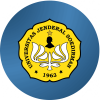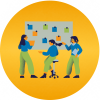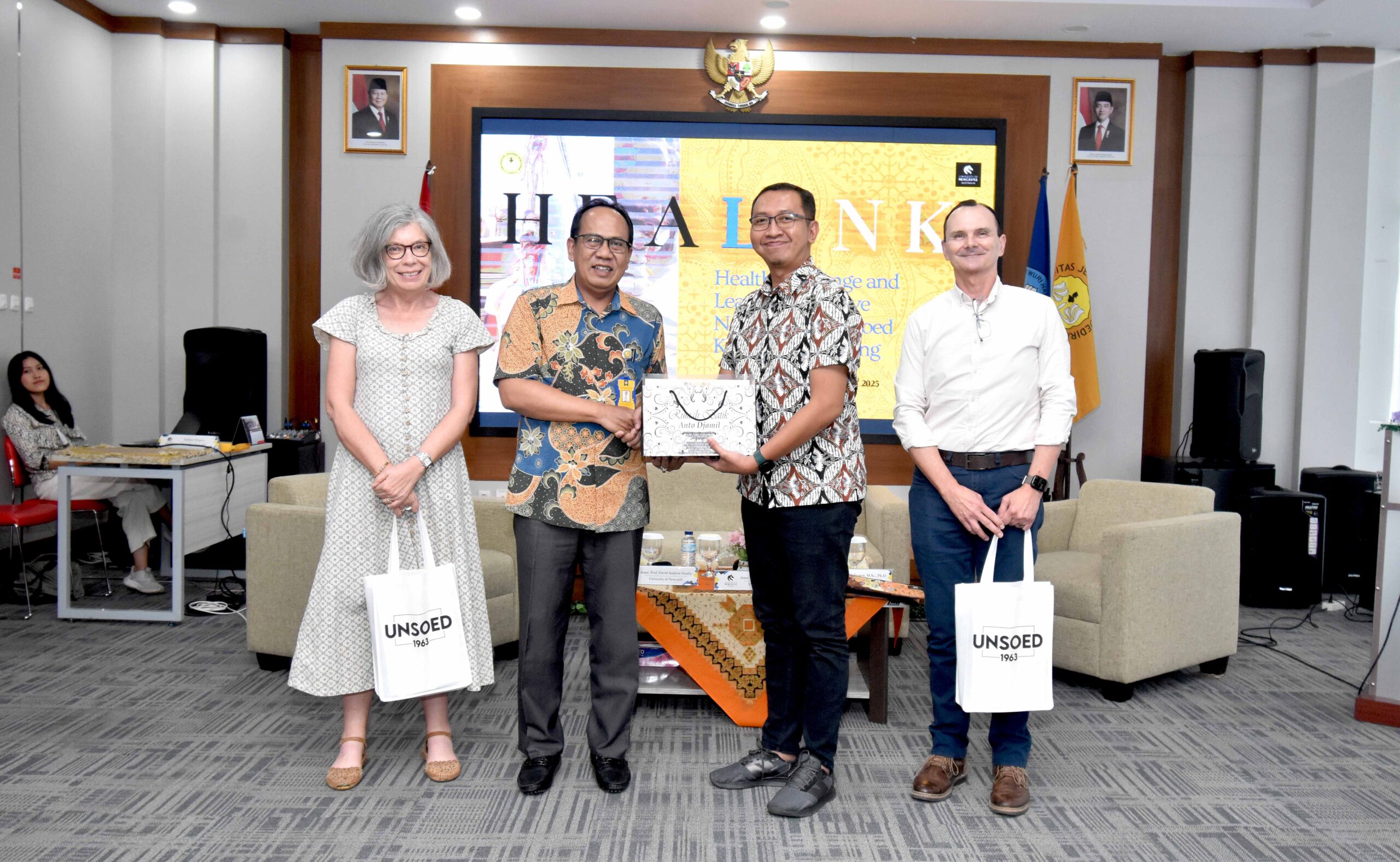[unsoed.ac.id, Thurs, 03/7/25] Jenderal Soedirman University (UNSOED) hosted a guest lecture titled ‘HEALINK – Health Exchange and Learning Initiative’, a strategic collaboration between UNSOED and The University of Newcastle in Australia. The event occurred on Wednesday (02/06/2025) at the IAB Building, UNSOED.
This event provides a platform for knowledge sharing among academics in the field of health. Its goal is to strengthen academic networks and create opportunities for further collaboration in the advancement of education and research in public health.
The event began with remarks from the Vice Rector for Planning, Cooperation, and Public Relations, Prof. Dr. Waluyo Handoko, S.IP., M.Sc. In his speech, he expressed his gratitude for the partnership that has been established between UNSOED and The University of Newcastle.
“We greatly value the collaboration that includes lecturers and students in exchange programs and joint research efforts. This partnership is expected to enhance the quality of education and strengthen mutually beneficial international relations,” he stated.
Professor Waluyo emphasized that UNSOED, a higher education institution dedicated to rural empowerment, is committed to expanding international cooperation as part of its contribution to sustainable development, particularly in the field of health. He expressed hope that this partnership will continue to grow through student and staff exchanges, as well as more intensive research initiatives.
In this session, participants gained insights from the following speakers:
- Associate Professor Karen Elizabeth Mate – The University of Newcastle
- Associate Professor David Andrew Newby – The University of Newcastle
- Joko Mulyanto, M.Sc., Ph.D – Faculty of Medicine, UNSOED
One of the main topics discussed was the role of mutual cooperation as a form of local wisdom in addressing diabetes, which has become a global health challenge.
It was explained that several factors contribute to the high prevalence of diabetes, including a lack of health awareness and education, limited access to early detection and screening, low compliance with treatment, and insufficient self-management skills among those affected.
Addressing this issue requires the active involvement of the community. This includes implementing community-based education that reflects local cultural values, decentralizing screenings through Posbindu PTM (Integrated Non-Communicable Disease Management Posts), and developing support systems such as family empowerment and peer support. Additionally, fostering collective learning can enhance self-care management skills.
“Gotong royong is not just a nostalgic cultural concept; it is a practical strategy for public health. This approach can enhance access to healthcare, expand knowledge, and encourage patient compliance. Furthermore, it serves as a key component of a robust, sustainable, and culturally relevant national strategy to address the diabetes crisis,” stated Dr. Joko Mulyanto.
#unsoed1963#merdekamajumendunia
















